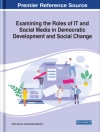Does interpersonal political communication improve the quality of individual decision making? While deliberative theorists offer reasons for hope, experimental researchers have demonstrated that biased messages can travel via interpersonal social networks. We argue that the value of interpersonal political communication depends on the motivations of the people involved, which can be shifted by different contexts. Using small-group experiments that randomly assign participants’ motivations to seek or share information with others as well as their motivations for evaluating the information they receive, we demonstrate the importance of accounting for motivations in communication. We find that when individuals with more extreme preferences are motivated to acquire and share information, collective civic capacity is diminished. But if we can stimulate the exchange of information among individuals with stronger prosocial motivations, such communication can enhance collective civic capacity. We also provide advice for other researchers about conducting similar group-based experiments to study political communication.
Elizabeth C. Connors & Matthew T. Pietryka
Examining Motivations in Interpersonal Communication Experiments [EPUB ebook]
Examining Motivations in Interpersonal Communication Experiments [EPUB ebook]
购买此电子书可免费获赠一本!
语言 英语 ● 格式 EPUB ● ISBN 9781009118538 ● 出版者 Cambridge University Press ● 发布时间 2022 ● 下载 3 时 ● 货币 EUR ● ID 8650322 ● 复制保护 Adobe DRM
需要具备DRM功能的电子书阅读器












